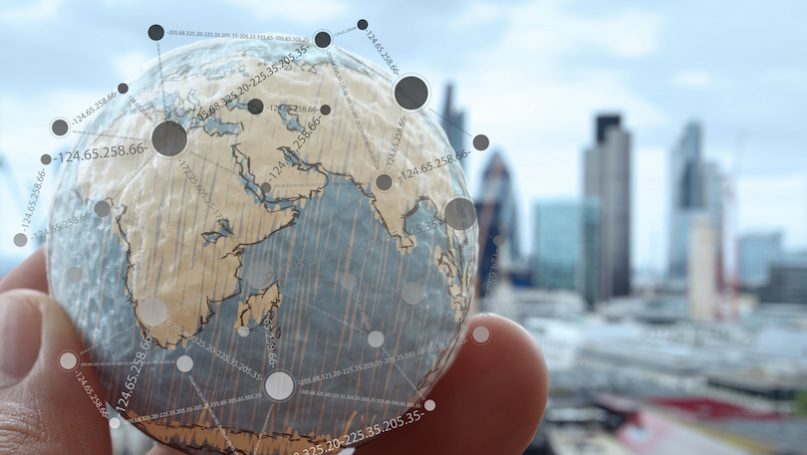
This feature is part of the online resources to accompany the textbook Foundations of International Relations.
People have always travelled from place to place and exchanged goods and cultural artefacts. What has changed, due to advances in technology and transportation, is the speed and intensity of this process. Embodying this shrinkage of time and space, the term ‘globalisation’ is a major part of how we perceive today’s world. The Cold War ended when the Soviet Union collapsed internally between 1989 and 1991 due to endemic corruption, popular resistance and economic decline. The ‘Second World’ was therefore no more, having lost its anchor. Virtually all of the world’s states then transitioned to capitalism, if they had not already done so. At this point, the term ‘globalisation’ became widely used by scholars and policymakers more generally to describe the process of the First World’s image gradually becoming representative of the entire world. For the first time in history a truly ‘global’ system had been born. States then became categorised more loosely within that global system by their economic levels of development post-1991, with ‘Global North’ sometimes used to represent the most historically developed economies, and ‘Global South’ essentially replacing the term ‘Third World’.
Globalisation, especially when taken to be an unstoppable process within today’s global system, raises a number of questions. When we try to answer these questions, we quickly find new ones emerging. For example, if we settle on an idea of globalisation as the emergence of a shared global culture where we all recognise the same symbols, brands and ideals, what does that mean for local products and customs that may be squashed out of existence? Examples like this build around the question of whether globalisation is more negative than positive. In this sense, it can be seen to represent the imposition of Western (especially American) political ideas and neoliberal capitalist economics – which can be viewed as unrepresentative and/or exploitative.
Critiques such as this have inspired an anti-globalist (or ‘alter-globalism’) movement which is active in society and academia. The wide-ranging debate that just one term evokes is characteristic of the discipline of International Relations itself and the complexity it attempts to navigate. Globalisation also comes with a darker side via the opportunities it provides for criminals and terrorists to operate more effectively. Yet, beyond these issues, it is a useful way to visualise the importance of global trade and interconnectedness in a tangible sense. When taken alongside other modern features of how states, organisations and individuals interact, it offers a more holistic picture of today’s global system.
Depending on the variant of English used, globalisation can also be spelt as ‘globalization’.
Text adapted from McGlinchey, Stephen. 2022. Foundations of International Relations. London: Bloomsbury.
Below is a collection of multimedia resources that help unpack, and explain the importance of globalisation to International Relations scholarship.